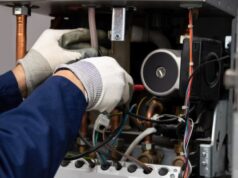
The type of fuel your hot water heater uses can mean the difference between huge bills and no bills at all. Find out what types of fuel are right for your hot water system.
The type of fuel you use for your hot water will make a huge difference to both your greenhouse gas emissions and your operating costs. Using a renewable energy like solar will mean that you’ll be using free, clean energy most of the time – whereas an electric hot water system will inevitably cost more to run and have a greater environmental impact.
Not all fuel sources are viable in all areas, though – and in many cases you’ll need to choose between the fuel sources that are available.





